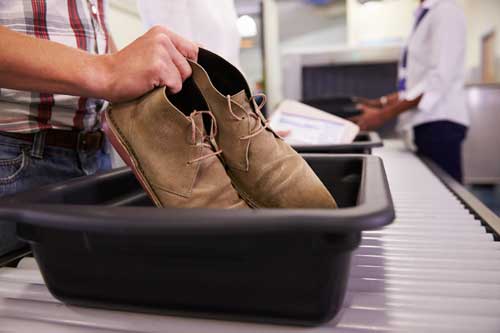
Rethinking the Laptop Ban
Back in March, The United States Government implemented a ban on carry-on electronic devices on certain airlines from the Middle East and Africa to the U.S. due to security fears of a potential bomb threat. However, IATA recently called for the government to re-think this current policy as it has opened up an array of financial concerns for the affected airlines.
Financial Concerns
Since the ban on laptops in carry-on baggage was initiated in March, airlines are finding implementation of the ban has been a financial burden. In addition, governments did not consult with IATA, which gave airlines little time to implement the ban. As passengers are now forced to check their laptop computers, the affected airlines had to increase the training of the current staff as well deploy extra staff due to the increased handling of cargo hold baggage. In addition, the affected airlines fear that companies will cancel trips rather than risk losing confidential information in checked laptops, causing a potential decrease in business customers.
It is estimated that the ban affects more than 18,000 daily passengers, in particular Gulf carriers and airports have noted a drop in passenger traffic between their hubs and the United States. There is certainly a risk of affected airlines losing frustrated passengers to other carriers not affected by the ban. From a systematic point of view, the ban has caused slower moving security lines at the airports due to more thorough baggage screening measures, triggering a surge in departure delays. In the ban’s current scope, IATA has estimated that the ban could cost $180 million in lost productivity, which could increase to $1.2 billion if the ban is eventually expanded to Europe-US flights.

Alternatives to Banning Devices
IATA is recommending various alternatives to potentially replace the current ban. These recommendations include the use of explosive trace detection at primary and secondary security checkpoints, visual inspection of electronic devices for signs of any alterations, questioning passengers about the purpose and origin of the device, the possibility of turning on the device to help determine its functionality, the deployment of “behavioral detection” officers and canines, recognition of trusted traveler programs and the identification of high or low-risk passengers, and increased training for screeners to detect potential threats from electronic devices and laptops.
It is unknown whether or not IATA’s recommendations will ever come to fruition. In the meantime, we will have to wait and see how long this ban will be in affect and how much it will cost the carriers in the long run.
Sources
https://www.businesstraveller.com/news/2017/06/07/iata-appeals-alternatives-laptop-ban/
http://www.news.com.au/world/breaking-news/us-mulls-banning-more-electronics-in-air/news-story/58f268e2ee31224979f67853efead8dc






 ICC USA
ICC USA ICC Canada
ICC Canada